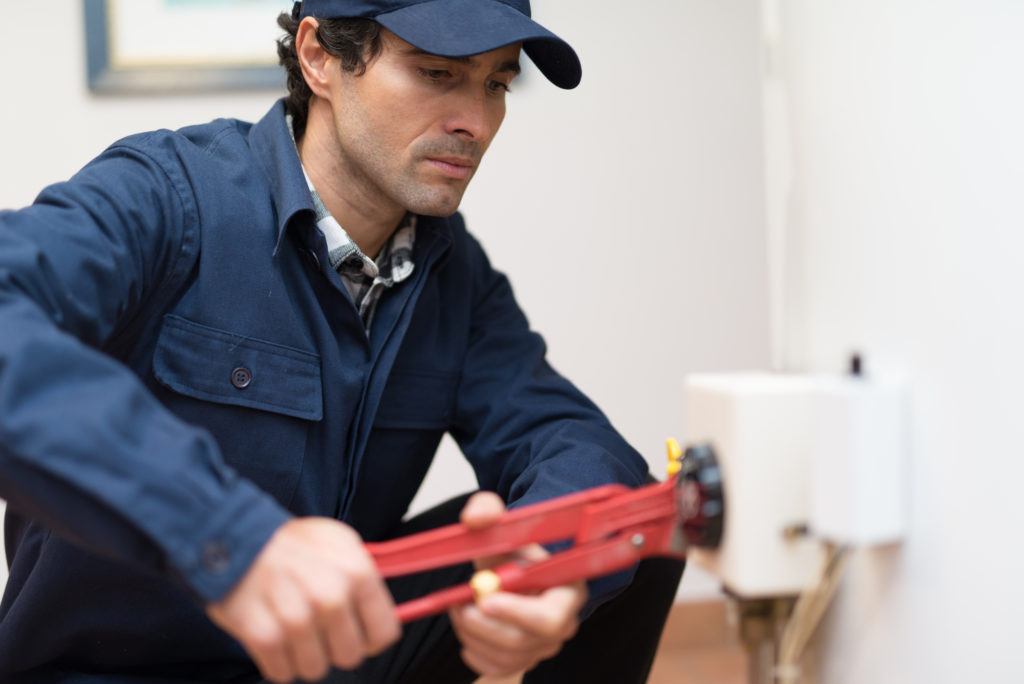An Introduction To Fixing Regular Water Heater Problems
An Introduction To Fixing Regular Water Heater Problems
Blog Article
We've found this post relating to Common Problems with Your Home Water Heater down the page on the internet and decided it made good sense to share it with you over here.

Think of starting your day without your routine hot shower. That already sets an inadequate tone for the rest of your day.
Every residence needs a reliable hot water heater, but just a couple of understand how to take care of one. One very easy way to maintain your hot water heater in leading form is to look for faults routinely and repair them as soon as they appear.
Remember to switch off your water heater before smelling around for faults. These are the hot water heater faults you are probably to encounter.
Water also hot or also chilly
Every hot water heater has a thermostat that establishes how warm the water gets. If the water coming into your home is also hot regardless of setting a practical maximum temperature, your thermostat might be malfunctioning.
On the other hand, too cold water might be because of a failed thermostat, a damaged circuit, or improper gas flow. For instance, if you use a gas water heater with a damaged pilot burner, you would certainly get cold water, even if the thermostat is in ideal condition. For electric heating units, a blown fuse might be the wrongdoer.
Not nearly enough warm water
Water heaters come in many dimensions, relying on your warm water demands. If you lack hot water before everyone has actually had a bathroom, your water heater is also small for your family size. You need to take into consideration mounting a larger hot water heater storage tank or opting for a tankless hot water heater, which takes up much less area and is extra resilient.
Odd noises
There go to the very least 5 kinds of noises you can hear from a hot water heater, yet the most typical interpretation is that it's time for the hot water heater to retire.
To start with, you must be familiar with the typical seems a hot water heater makes. An electrical heater may sound various from a gas-powered one.
Popping or banging audios typically imply there is a piece of debris in your storage tanks, as well as it's time to clean it out. On the other hand, whistling or hissing sounds may simply be your shutoffs letting some stress off.
Water leakages
Leaks can come from pipes, water links, valves, or in the worst-case situation, the container itself. Over time, water will rust the tank, and also locate its way out. If this takes place, you require to replace your water heater asap.
Nevertheless, before your adjustment your entire storage tank, make sure that all pipelines remain in place and that each valve works perfectly. If you still need aid identifying a leakage, call your plumber.
Rust-colored water
Rust-colored water means among your water heater parts is rusted. It could be the anode pole, or the container itself. Your plumber will be able to recognize which it is.
Warm water
Regardless of how high you established the thermostat, you won't get any type of warm water out of a heating system well past its prime. A hot water heater's performance may reduce with time.
You will certainly also obtain lukewarm water if your pipes have a cross link. This indicates that when you switch on a faucet, warm water from the heating system moves in together with regular, cold water. A cross link is simple to area. If your warm water taps still follow shutting the hot water heater shutoffs, you have a cross connection.
Discoloured Water
Corrosion is a significant cause of unclean or discoloured water. Rust within the water container or a falling short anode pole might cause this discolouration. The anode rod secures the tank from rusting on the within and should be inspected annual. Without a pole or an effectively working anode rod, the hot water swiftly rusts inside the container. Get in touch with a professional water heater specialist to figure out if changing the anode pole will take care of the trouble; if not, change your hot water heater.
Verdict
Preferably, your water heater can last 10 years before you need a change. Nonetheless, after the 10-year mark, you might experience any one of these mistakes much more routinely. Now, you need to add a brand-new water heater to your budget.
How To Troubleshoot 3 Common Water Heater Problems in Twin Cities
The Water Heater Is Leaking
A leaky cold water inlet valve A loose pipe fitting A leaky temperature and pressure relief valve A corroded anode rod A cracked tank Turn Off Your Water Heater:
Shut off your gas water heater by turning the gas valve on the unit to the “OFF” position. Shut off your electric water by switching its power off at your electrical panel. Look for a two-pole breaker labeled “water heater” and turn it to the “OFF” position. Move the ball valve connected to the water heater to be perpendicular to the piping at a 90° angle. Look for the Leak:
Depending on whether the water is coming from the tank's top or bottom, you’ll want to look for the leak in different locations.
If the leak comes from the top of the tank, carefully look for water escaping from the cold water inlet valve or loose pipe fittings. Rusted hot and cold water valves can have loose connections with the tank, with water leaking out of them.
https://mspplumbingheatingair.com/blog/how-to-troubleshoot-3-common-water-heater-problems
I hope you liked our excerpt on Common Problems with Your Home Water Heater. Thanks for spending some time to browse our article. Sharing is caring. Helping people is fun. Thank you for your time invested reading it.
Quality first, dial! Report this page